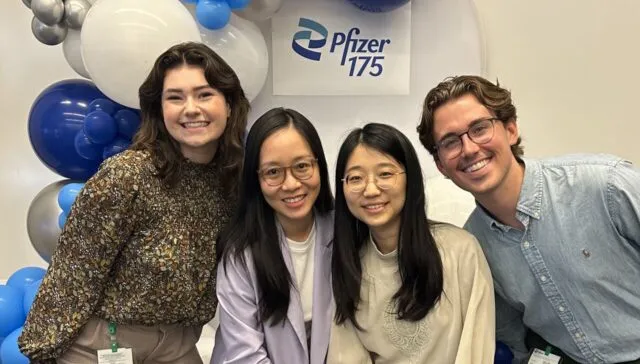I’ve got bad news and good news: How prevention can change the conversation around cancer pt.2

This is the second installment of Dr. Sherr’s two-part series. Be sure to check out his first post on why prevention outweighs treatment.
“Honey…I’ve just come from my doctor, and I have bad news. I have cancer.”
According to the National Cancer Institute, almost two million Americans will have this kind of conversation every year and, 40% of us will have the “pleasure” in our lifetime. It costs the country about $208 billion/year to care for cancer patients; for those of you who are counting, that’s about $104,000/cancer patient. And it’s only going to get worse. The number of cancer patients is expected to double in the next 20-30 years. That’s just in the U.S. The world cannot treat its way out of this.
So, why not take a lesson from our recent near societal-death experience with the SARS-CoV2 pandemic? Why not learn how to harness the immune system, the one biological system adaptable and powerful enough to kill an ever-morphing beast like cancer? Better yet, why not determine molecular signs of a cancer that’s about to happen and then intercept it by boosting the immune system before the beast gets a foothold? Seems kind of pie-in-the-sky, right? In the Sherr lab, we think it is doable.
Understanding potential prevention measures
As it turns out, the key to understanding how to globally enhance immunity, ironically, comes from learning how some very nasty carcinogenic pollutants, to which we are regularly exposed, suppress the immune system. We learned that these pollutants mimic natural “hormones” that subtly—and the key here is “subtly”—interact with a protein receptor in a body’s immune cells that has evolved to prevent the immune system from becoming overactive. The absence of this control of the immune system results in autoimmune or inflammatory diseases such as:
- Systemic Lupus Erythematosus (SLE)
- Rheumatoid Arthritis (RA), or
- Inflammatory Bowel Disease (IBD)
The trick that apparently most types of cancer cells “learn” is how to make insane levels of these hormones with which to pummel this receptor in nearby immune cells, triggering the receptor to all but shut down cancer immunity. Clever, right? Well, we may have a solution.
When treatment aids prevention
We have developed non-toxic drugs that specifically block this receptor and enable the body’s immune system to blossom in the face of multiple kinds of cancers (at least in animal models), including:
- Oral
- Skin
- Colon
- Breast
When these drugs are fully optimized, we have shown that blocking this receptor in cancer cells results in 100% immunity to oral and about 80% immunity to lung cancers. The mechanism of how the drugs work is neither questionable (Echinacea anyone?) nor mysterious. The environmental chemical introduced to the body act similar to the body’s natural hormone receptors, which are master regulators of several immune checkpoints. Immune checkpoints can be loosely defined as redundant decision points in the cascade of signals within immune cells that lead to either activation or inhibition. Thus, these checkpoints are the ultimate determinants of whether a given immune cell is going to turn on or turn off.
Every night when you see commercials for cancer immunotherapeutics (which collectively have truly revolutionized cancer treatment), you should know that each drug (e.g., Keytruda/Pembrolizumab, Opdivo/Nivolumap) targets only one of these immune checkpoints. In contrast, our drugs simultaneously block many immune checkpoints by virtue of their ability to inhibit an upstream controller (i.e., the receptor) without any untoward side effects currently known.
What we’ve learned and where we’re headed
“But aren’t you still talking about therapy and not prevention?”
Ah, here’s the good part.
In the course of these studies, we learned that this immunosuppressive receptor gets “turned on” long before any sign of cancer can be found by any current imaging technology. And, thus, likely, before anything that could be called a cancer is born. We’re currently working on simple blood tests to reveal when the receptor turns on. Only the resources we have to work the problem limit the speed at which we can significantly progress on these screening assays.
All of this means that, in theory, we could routinely screen people for signs of receptor activation and then treat them prophylactically with our immune-enhancing drugs before the formation of any cancer that exploits the receptor, which appears to be most cancers. In a perfect world, it would mean that the evening conversation that opened this blog would go something like:
“Honey…I’ve just come from my doctor, and I have bad news. If I do nothing, I am going to get cancer. The good news is, I can take this drug the doctor gave me, and I likely won’t get it.”
“What should we have for dessert?”
David H. Sherr, PhD is a professor of Environmental Health at Boston University School of Public Health. His research has focused on the molecular mechanisms that initiate and maintain breast and other cancers. Dr. Sherr has conducted research on how common environmental pollutants, such as dioxins, polycyclic aromatic hydrocarbons, and PCBs, activate a receptor (the “AhR”) in malignant cells. AhR activation enables these cells to shut down anti-tumor immune responses. In the most recent studies, the Sherr laboratory demonstrated that the AhR is also activated by endogenous chemicals produced in high levels by cancer cells. The consequence of AhR activation in malignant cells, either by endogenous or environmental chemicals that mimic the natural, endogenous chemicals, is the aberrant expression of key “immune checkpoints,” the master inhibitors of cancer immunity. Consequently, the Sherr lab has developed non-toxic inhibitors of the AhR that may serve as cancer preventatives or immunotherapeutics with the end goal of enhancing a natural and potent anti-cancer immune response.




